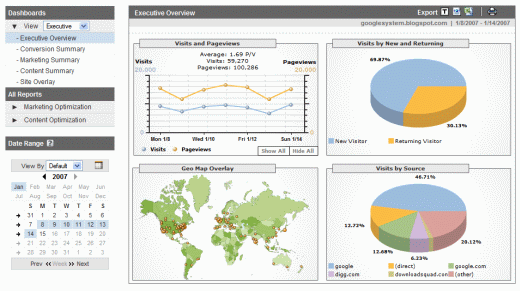What we have done is focused a lot of effort on making our products extremely easy to use, easy to set up, and we've tried to get rid of integration hassles wherever we can. For example, by pre-integrating with products like AdWords; and we've also done some stuff with Google Checkout. We hope to make these things a kind of one button "click and it works." That's the model we tend to go toward when we can.
I don't think Google Analytics is that easy to use, like Brett says. For example, it's not possible to get a complete list of your top referrals. If you go to "Referring source" you get a list of sites, and for each site you can see all the pages that sent you traffic. But there are no links and you have to manually build the URLs to be able to check that pages.
Instead of having an expensive product, like most of the rest of the market, we have a free product. Many analytics products come with a pre-determined set of professional services, and then if you want additional things the analytics vendor will up-sell you. For a lot of analytics vendors, professional services is a big piece of their revenue stream. Google has used a really different approach. It's a free product that anyone with a website can use.
It's a nice feeling to use the same product like a big corporation, even if you only have a small site. You'll also be happy using Google Groups or the online help.
Brett explains the reasons why web analytics tools report different numbers:
"(1) the first one is how you define unique visitors and
(2) how the analytics package handles the length of time between visits, and
(3) whether anti-spyware is blocking cookies for one vendor and not another."
One of the priorities for Google Analytics is to count traffic from users that disable cookies or JavaScript. They also want to handle AJAX applications better, as the page views are irrelevant.
Homework:
1) Is Google Analytics easy to use?
2) How would you improve it?
{ Via Search Engine Watch. }







